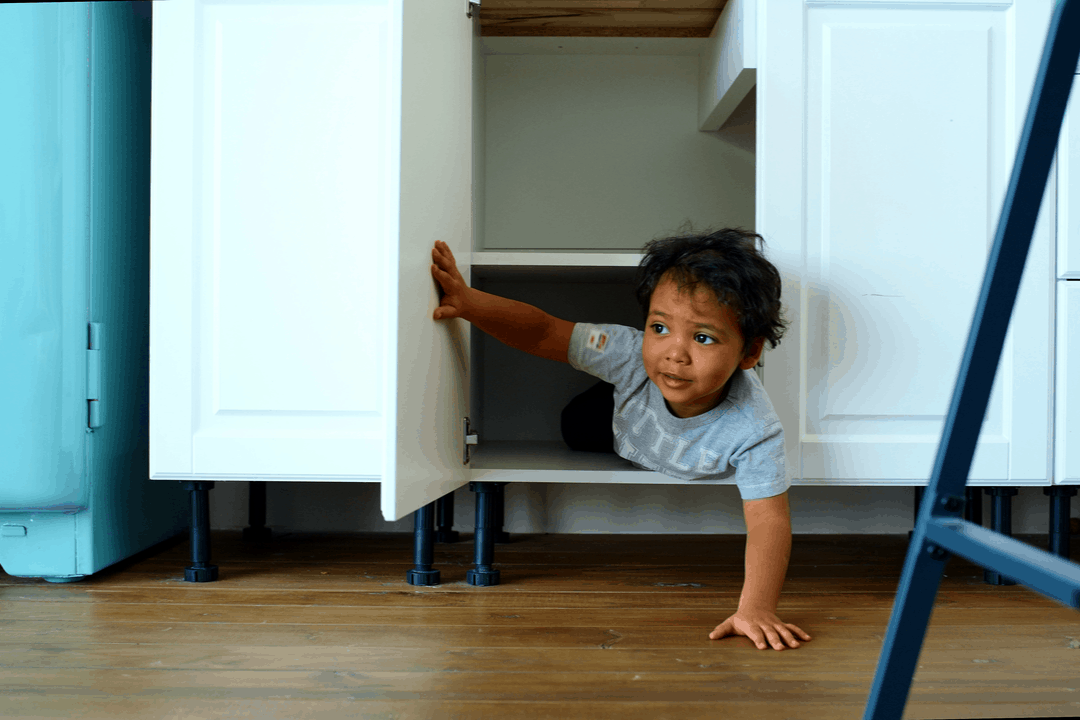In many cultures, the month of January brings the promise of a fresh start as individuals look ahead to a new year. As I write this blog from the winter wonderland that I call home, there’s the glimmering hope of renewal and spring to come as the short days start to lengthen again.
Before we go too far down this path, I have to confess that this isn’t going to be a typical January blog about new year resolutions or fresh starts. Instead, I’m going to go against the grain and write about familiar things, such as routines and repetition. Why? Because a couple of young children in my life have got me thinking! To help you form a mental picture, let me share the scenario of how regular playdates with a toddler and preschooler in my extended family go.
As I pull into the driveway, the dog barks frantically to announce my arrival. I’m barely through the door, with one arm still in my coat, when the excited entreaties start. “Can we play hide-and-seek?! Can we play hide-and-seek?!” If I don’t answer the first time, the request is repeated until both children are satisfied with an agreeable response.
Certainly, there’s nothing unusual about this scenario, except that with the preschooler, it’s been happening every week for eighteen months straight! That’s a lot of hiding in the same places, over and over again, and still, their excitement refuses to diminish. Naturally, this got me wondering why they want to play this familiar game EVERY time we visit together!
Thankfully, I didn’t have to look very far to find the answer because our lives revolve around familiar routines.4 Think about how you started your day. Did you enjoy your favorite morning beverage? Did you check your social media feed, the news, or the weather on your phone? It’s likely that whatever you did, at some point, you fell into your familiar groove. In the same way that our lives revolve around routines, the experts tell us that babies are born to seek out patterns.1 That’s because repetition and routines provide children with a sense of security as they learn to predict what will happen next and make sense of their world.1,4
Researchers tell us that when children consistently experience routines and feel safe and emotionally secure, they can start to exercise self-control.4 This, in turn, becomes a building block for learning about the patterns and routines needed for social interactions, such as taking turns, sharing, and learning to wait.4 Repetition also builds self-confidence, as children learn that with practice, they can master a skill.2
When I think about all the times I’ve played hide-and-seek with the children described earlier, I’m reminded of the many wonderful skills they get to practice and master. For example, they learn about:
- Managing their emotions so that they can stay quiet,
- Problem-solving as they figure out the best place to hide, and
- Using their physical skills as they adjust their bodies for different hiding places.
These are only a few of the skills I’ve watched them practice in the safety of our caring relationship. Our nurturing relationship also makes it okay for them to try out things like what happens when they don’t take turns or the consequence of stopping the game before finding the person that’s hiding (yes, I’ve been left a few times buckled up like a pretzel “waiting” to be found). No matter what learning opportunity arises as we play hide-and-seek, these children have come to understand that I’ll be there to support them and respond to their needs.
The experts tell us that these responsive relationships and repetition go hand-in-hand. In fact, they are the key factors for supporting children’s learning.4 This concept led me to think about how the Growing Great Kids® Curriculum recommends repeating parent-child activities with families. Encouraging parents to repeat familiar activities not only benefits children by helping them master a skill, but it ALSO benefits parents. Through repetition, parents can learn ways to support their child’s development across multiple learning domains and practice different parenting skill sets.3 Repeating parent-child activities supports learning!4
As you repeat parent-child activities with families, remember that these activities are a starting point for joyful parent-child interactions. As parents respond to their child and follow their lead, they can adapt the play to meet their child’s needs and interests in the moment.
Talking of adapting play in the moment, now that I know all the benefits of repetition, I’ll keep following the preschooler’s lead in playing our fun game of hide-and-seek. I know that one day they’ll grow out of the game, and I’ll likely miss our familiar routine.
References
1. Golinkoff, R. M., & Hirsh-Pasek, K. (2016). Becoming Brilliant. American Psychological Association.
2. Healthy Families BC. (2014, November 30). Connecting with your preschooler: Building self-esteem. https://www.healthyfamiliesbc.ca/home/articles/connecting-your- preschooler-building-self-esteem
3. Roggman, L. A., Boyce, L. K., & Innocenti, M. S. (2008). Developmental parenting: A guide for early childhood practitioners. Paul H. Brookes Publishing Co.
4. Zero To Three. (2010, February 20). Creating routines for love and learning.https://www.zerotothree.org/resources/223-creating-routines-for-love-and-learning
About the Author

Melissa Weekes is a Product Development Specialist. Prior to joining Great Kids® in 2018, she worked as a home visitor with Public Health Services where she used the Growing Great Kids® Curriculum. Melissa lives in Nova Scotia, Canada, with her husband and enjoys any opportunity to be creative!


